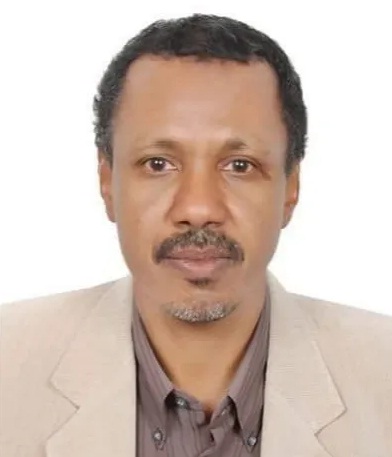Militias in Khartoum… Death Without Coffins

Dr. Ibrahim Al-Siddiq Ali
In military operations, maintaining or leaving a position is a military decision that is subject to many considerations and details, none of which include (fighting) or (frenzy). In any case, the commander is responsible for his decision and takes into account its consequences and implications.
So, how will the commander of the Rapid Support Forces justify leaving his troops stranded in Khartoum, surrounded by death from all sides?
No sane commander would deliberately move from one point to another while his forces are losing equipment, ammunition, combat vehicles, and personnel every day, and the opposing side is gaining strength and effectiveness. What wisdom is there in staying trapped in a tightening grip, with no way out, when escape is possible?
There are several factors at play:
First: Military recklessness, based on maneuvers carried out by the militia during the first weeks of the war, with heavy fire, maneuvering, and panic, but the plan failed in places like Jebel Moi, Sennar, Um Al-Qura, the entire Gezira region, the refinery, and even in Al-Qutina, as well as in all areas of Omdurman, Bahri, and East Nile. Not only that, but the army gained the initiative, and its forces are increasing in strength, effectiveness, armament, infantry, and military tactics.
Second assumption: The expectation of new supplies or a game-changing factor (such as new weapons, military reinforcements, or the opening of a military gap), but all of this is not feasible. Supply routes have been cut off, and the sources have dried up, whether from local social networks, West African mercenaries, or transborder criminal gangs. The joint forces in the desert axis destroyed the largest militia convoys a month ago. The militia trapped in Khartoum is the same defeated and retreating force from other regions, with worn-out equipment and broken morale.
Third: Waiting for an external change (such as the rainy season) or international negotiations or stances, but this is also unlikely. The battles in Khartoum are not reliant on Khartoum alone, and most of the international diplomatic maneuvers behind the militia and its supporters have failed. What are the reasons behind the militia’s continued presence in Khartoum?
Yesterday, on February 24, 2024, after the army and elite forces secured the Soba East Bridge, the militia’s option of moving from East Nile via the Manshia Bridge would only lead to more logistical complications and a deeper quagmire, since the only escape route is the Jebel Awlia Bridge, which is now impossible to reach as the army has deployed across many parts of Khartoum and military forces have advanced significantly in South Khartoum. So, what are the options for the militia of Al-Daqlo?
In my opinion, there are three possible assumptions:
1. Indifference to the lives of their fighters. None of their leaders care about their deaths. This has been witnessed in their battles with armored vehicles, where they fall by the thousands and return the next day by the same route. Similarly, in Al-Fasher, there are many such incidents, and leadership will only withdraw at the last moment, leaving the rest as corpses or bodies on the streets. This is the nature of the savage militia. Just as they kill without remorse, they leave their fighters behind with no regard for them, just like the remnants of ammunition and equipment. Many of the wounded are left alive in the streets or in homes abandoned by the militia.
2. The second assumption is that the field commanders (Othman of Operations and Hassan Idris) fear being executed once they withdraw, so they will hold their positions until the last of their troops perishes to prove their loyalty to their superiors. We have seen many commanders perish in recent days, such as Jalha, Jebleen, Abdullah Hussein, and others.
3. The third possibility is that the decision is made by someone who is disconnected from reality, or their decision is not independent. A careful observer of the militia’s communications can see that there is an attempt to confuse and mislead, with claims that have no basis in fact.
Perhaps all three assumptions apply to varying degrees, and it is up to local leaders and intellectuals to urge these misguided individuals to lay down their weapons and surrender immediately, or withdraw and return to their homes. Within a short period, once the Jebel Awlia bridge is closed, it will be difficult to remove their bodies.
This small siege in Khartoum mirrors a similar situation across the entire country, something the militia and its members fail to realize in their delirium. The coming days will reveal the folly of their thinking.
May God protect the country and its people.



